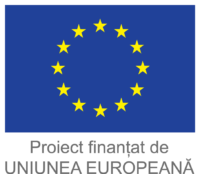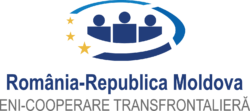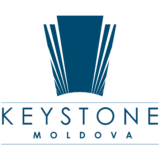Most young people with disabilities in the Republic of Moldova (94%) would benefit from career guidance activities to increase their chances of employment and a career, according to the sociological study, “Policies and Practices of Career Guidance for Young People with Disabilities in the Republic of Moldova.”
For young people with disabilities, having a job (87%) and a profession (82%) are very important. However, half of all young people with disabilities surveyed feel like they are not prepared to enter the workforce.
The study further reveals that despite some progress on policies and practices, challenges still exist to ensure people with disabilities receive career guidance in an inclusive manner. There is no clear, well-established concept of providing career guidance services for people with disabilities, no mechanisms for implementing the legal provisions in the field. For people with disabilities in the professional sphere, support services fall short of meeting their needs.
Although educational and employment organizations and civil society organizations (CSOs) provide career guidance services, these institutions do no cooperative with each other to ensure continuity of career guidance interventions. Activities are sporadic and inconsistent.
Sixty-four percent of young people with disabilities benefited from at least one career guidance service through an organization. Of these, 59% received services through an educational institution, 7% within the National Employment Agency, and 4% within civil society organizations. However, one-third did not benefit from any career guidance services, with more than half not even knowing that such services exist in the Republic of Moldova.
Of the people who benefited from career guidance services through an organization, 62% said they felt the need for additional vocational training. At the same time, young people with disabilities believe that family can help them choose their profession and help than access the workforce rather than the education or employment sector. This low level of trust in formal institutions is caused by a failure to adapt career guidance services to people’s needs. Human resources has limited capacity to provide career guidance that truly meets the needs of children and young people with disabilities.
The educational environment is often inaccessible, and the necessary materials or work tools to provide lessons or career guidance activities either don’t exist or have not been adapted to the needs of people with disabilities.
The information is not accessible to everyone. Only 26% of respondents with disabilities mentioned that career guidance materials were available in alternative formats, such as images, videos, etc.
Support services for children and young people with disabilities which could assist them in the educational process are insufficient.
This sociological study was conducted between February and April 2021 on a national sample of 1,111 people with disabilities.
Read the study, available in Romanian.
The sociological study was part of the project “Cross-border partnership for inclusive career guidance” (2SOFT/1.1/145), implemented by Keystone Moldova in partnership with “Close to You” Romania Foundation, financed by the European Union through the Joint Operational Program Romania-Republic of Moldova 2014-2020, through the European Neighborhood Instrument (ENI).





